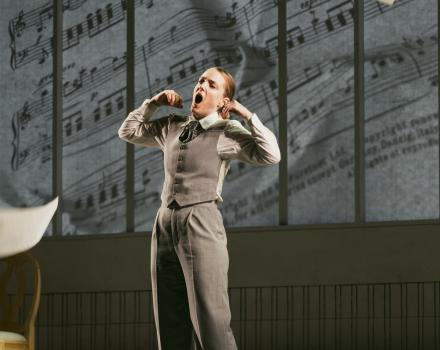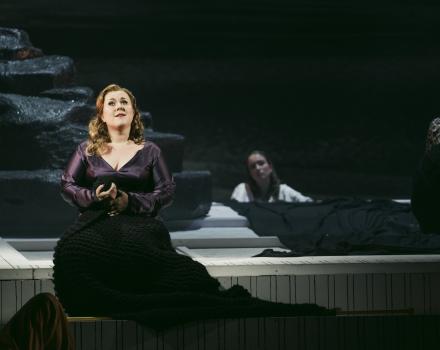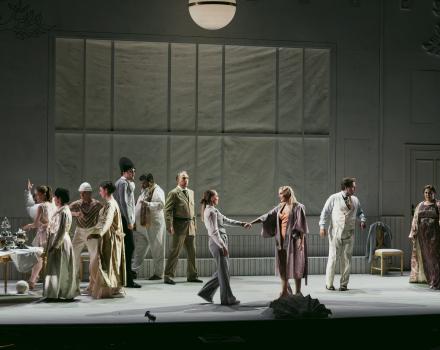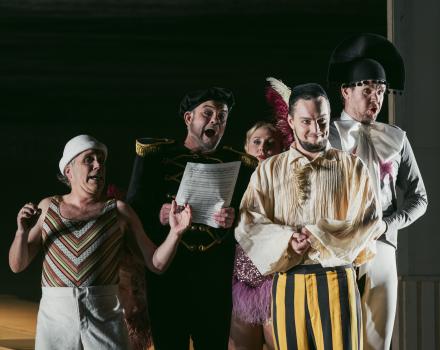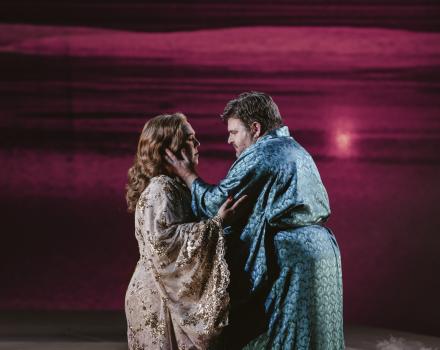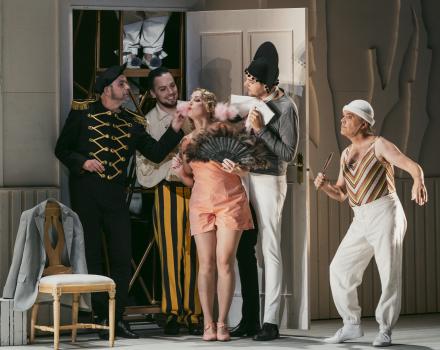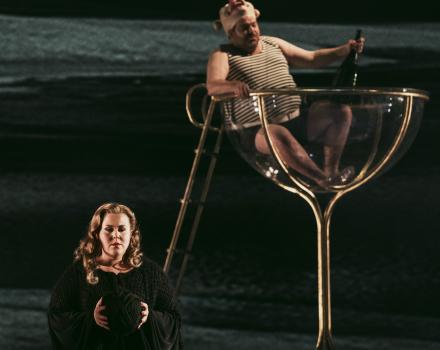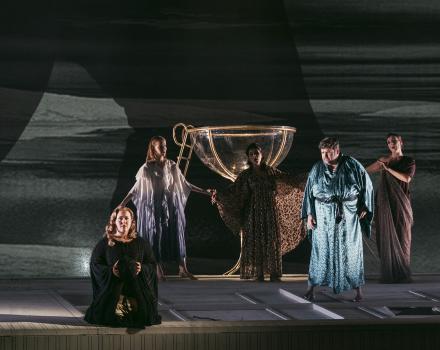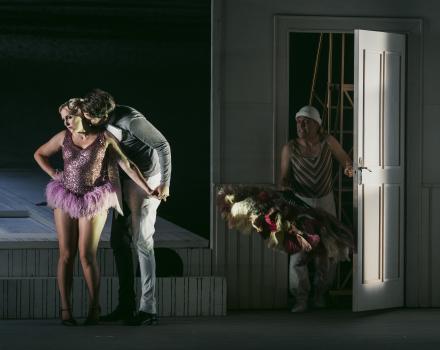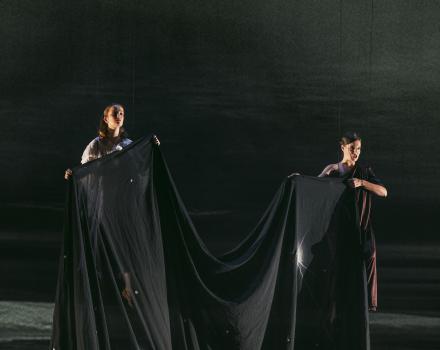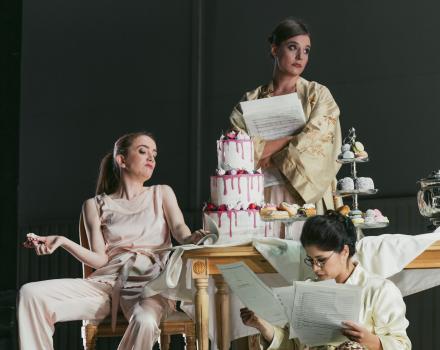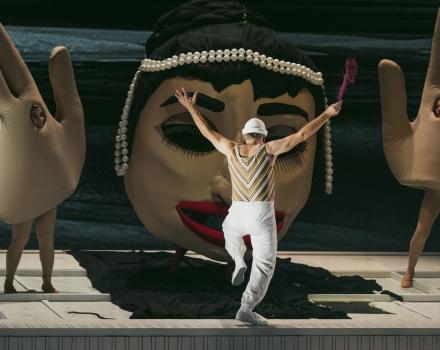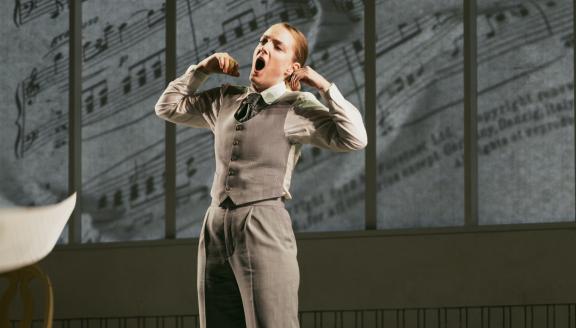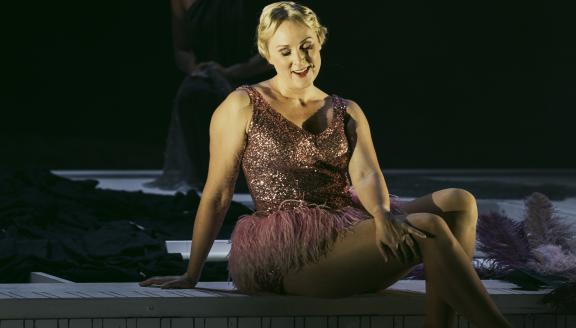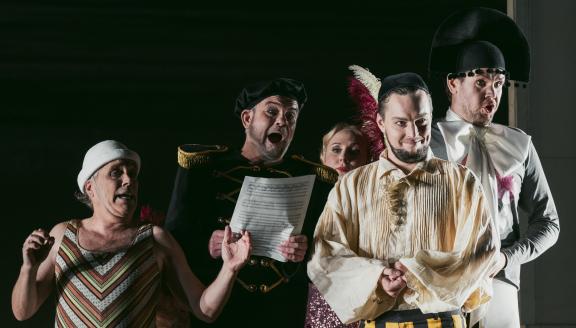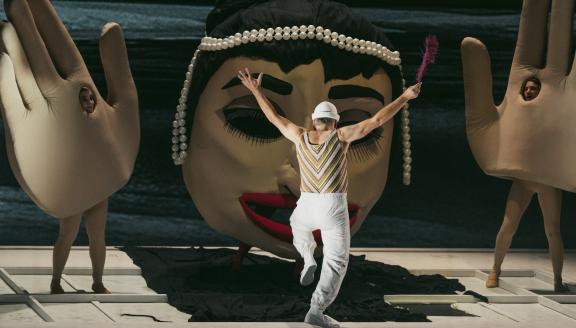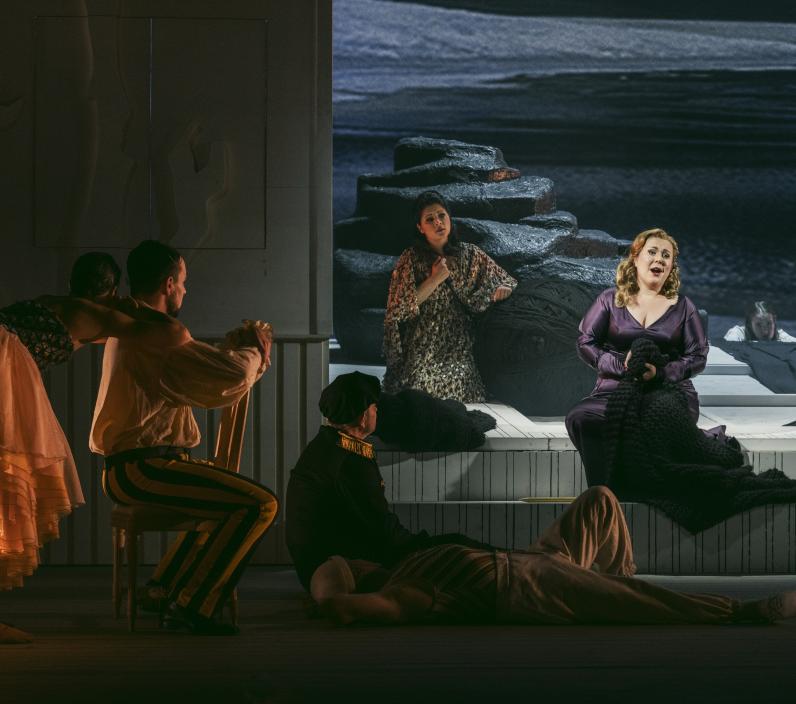
Ariadne auf Naxos
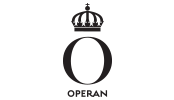
The composer is stressed. His little opera ensemble is about to perform Ariadne auf Naxos, a grandiose opera of his own making, at the home of a wealthy man. But the very same evening a troupe of players led by the colourful Zerbinetta will also perform, and the two ensembles fight over who is to go first. The threat of cuts is driving the earnest composer to near breakdown. This is the comic prologue to the opera about Ariadne that the audience will be attending after the intermission.
After Elektra and Der Rosenkavalier, the composer Richard Strauss and the librettist Hugo von Hofmannsthal were opera’s foremost duo in the first decades of the 20th century. They chose to follow up the two successes with a challenging experiment: an opera about an opera and a story about artistic creation. Ariadne auf Naxos is metafiction in its most enjoyable form, an opera that makes the audience aware of its own role in an entertaining way. It is a comic opera where spoken theatre is mixed with song. Strauss’ shimmeringly melodious and extravagantly orchestrated music is here performed under the baton of the Royal Swedish Opera Music Director Alan Gilbert and with Christina Nilsson, Johanna Rudström, Sofie Asplund, Michael Weinius and the actor Andreas T. Olsson in the leading roles.
Cast
|
Major-Domo
|
Andreas T Olsson
|
|---|---|
|
Music Master
|
Ola Eliasson
|
|
The Composer
|
Johanna Rudström
|
|
The Tenor / Bacchus
|
Michael Weinius
|
|
An officer
|
Jesper Taube
|
|
Dancing Master
|
Petter Moen
|
|
A wigmaker
|
Jan Sörberg
|
|
A lackey
|
Johan Edholm
|
|
Zerbinetta
|
Sofie Asplund
|
|
Prima Donna / Ariadne
|
Christina Nilsson
|
|
Harlequin
|
Jens Persson Hertzman
|
|
Scaramuccio
|
Jonas Degerfeldt
|
|
Truffaldino
|
Erik Rosenius
|
|
Brighella
|
Klas Hedlund
|
|
Naiad
|
Madeleine Allsop
|
|
Dryad
|
Kari Koskinen
|
|
Echo
|
Agnes Auer
|
|
Puppeteers
|
Henrik Bäckbro
Linn Bergstam
Annika From Borg
|
|
Orchestra
|
Royal Swedish Orchestra
|
| ... | |
|
Music
|
Richard Strauss
|
|---|---|
|
Text
|
Hugo von Hofmannsthal
|
|
Conductor
|
Alan Gilbert
|
|
Director
|
Katharina Jakhelln Semb
|
|
Set Design / Costumes
|
Susanne Mûnzner
|
|
Light
|
Susanna Hedin
|
|
Puppet Design
|
Kirjan Waage
Gwendolyn Warnock
(Wakka Wakka Productions)
|
| ... | |
Videos
The story
The Prologue
A famous, immensely wealthy art patron in Vienna has invited prominent figures of the cultural elite to a major event at his home. After dinner, the work of a young, talented composer will be performed for the first time: the tragic opera Ariadne auf Naxos.
The ensemble is busy with the final preparations when the director, who is also a music teacher and friend of the composer, is told, to his surprise, that another ensemble will also be performing. As the patron has planned a light-hearted end to the evening, he has engaged a commedia dell’arte group, starring the famous Zerbinetta, to perform an opera buffa-style epilogue after which giant fireworks will conclude the entertainment.
The composer is furious, and moments later disaster strikes when the major-domo announces that his master wishes to see both works, the tragic and the comic, performed.
This is followed by complete confusion. The composer wants to run away rather than seeing his work desecrated and his ideals ruined. It is only after great efforts on the part of the music teacher and the ballet master that he promises to stay and conduct his opera as well as make cuts in the score. But Zerbinetta restores the composer’s self-confidence. Partly in jest and partly in earnest, she sparks his young love, and when he finally wakes up from his enchantment, it is too late for him to change his mind.
The Opera
The king’s daughter, Ariadne, lies in front of a cave on a desert island in deepest despair. She has been abandoned by her lover, the hero Theseus. Three nymphs – Naiad, Dryad and Echo – have lulled the unfortunate woman to rest briefly with their song. It seems to Ariadne that death is the only way to escape her grief.
At this moment the commedia dell’arte company appears and try to comfort the princess in her distress.
Zerbinetta talks to Ariadne about her outlook on life, love especially, but there is no response. The players compete for Zerbinetta’s attention, and Harlequin wins. The nymphs rush in to announce the arrival of the god Bacchus. He has just escaped the tricks of the sorceress Circe and is now steering his ship towards Naxos.
As if in a trance, Ariadne goes to meet him, certain that he is Hermes, the gods’ messenger, who will guide her to the realm of death. She collapses ecstatically into his arms, but instead of death, she encounters life and love.
Gallery
